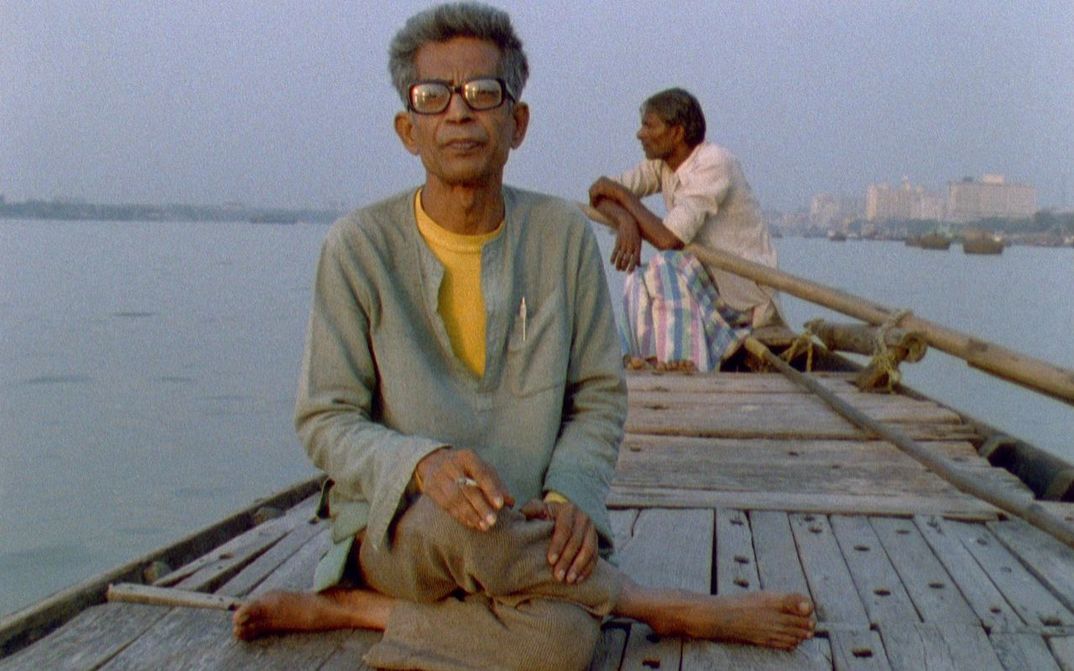Goethe-Institut India and Sri Lanka: Indian films from Arsenal's archive

Indian cinema has always been a fixture in Arsenal's program. The archive reflects this history. Many of the films shown in the cinema have found their way into the collection over the decades, including film copies that are now considered rare or unique. In recent years, Arsenal has digitally restored some Indian titles and made them accessible again. Returning films to their country of production played an important role in this process. Arsenal on Location now offers the opportunity to present a selection of restorations to local audiences in collaboration with the Goethe Instituts in India and Sri Lanka, which have often provided support. The events will take place at seven locations in November and December.
New Delhi: The program kicks off with films by the Yugantar collective. The documentary TAMBAKU CHAAKILA OOB ALI (Tobacco Embers, 1982) about one of the largest labor movements of its time and IDHI KATHA MATRAMENA (Is This Just a Story?, 1983), a film about domestic violence, will be shown in the presence of the director Deepa Dhanraj. In addition, a workshop, which will address issues of accessibility to film archives based on Arsenal's archival practices, will be held in cooperation with the Asia Art Archive (21–22.11)
Kolkata: The Arsenal has digitally restored three films by the filmmaker Ruchir Joshi, including EGARO MILE / ELEVEN MILES (1991). In this essay film, Joshi explores the past and present of Bengal's Bauls, whose music blends Hindu and Sufi elements. The restoration of the film was funded by the Goethe Institut in New Delhi. The screening will be accompanied by a discussion with the director, which will focus on his filmmaking and his work as a writer. The event is organized in collaboration with the Satyajit Ray Film & Television Institute. (25.11)
Mumbai: BADNAM BASTI (1971) was Prem Kapoor's debut film. The discovery of a unique 35mm copy in the Arsenal archive a few years ago sparked international interest in the film, which had been thought lost, not least because of its theme of a queer love triangle. The restoration was carried out in cooperation with the Film Heritage Foundation (Mumbai) and the National Film Archive of India (NFDC-NFAI, Pune), where the incomplete original image and sound negatives were stored. Using Arsenal's 35mm copy, it was possible to reconstruct a long version of the film.
The second film in the program is GHASHIRAM KOTWAL (Yukt Film Cooperative, Krishnan Hariharan, Mani Kaul, 1977), which was screened as part of the Berlinale Forum in 1978. A 35 mm copy with German subtitles remained at Arsenal for distribution purposes. To date, it is considered the only accessible copy and provided the starting point for a restoration in 2013. Based on a play oft he same name, which remains popular to this day, the film tells the story of the rise and fall of the Peshwas in western India. One of the elements that connect the two films is theater, which will kick off a conversation with director K. Hariharan.
In collaboration with the Film Heritage Foundation. (27.11)
Pune: A digital copy of the restoration of GHASHIRAM KOTWAL was handed over to the National Film Archive of India (NFDC-NFAI) in 2014. The screening in Pune now provides an opportunity to discuss film preservation and transnational cooperation. (28.11)
Bangalore: SAMSKARA (T. Pattabhi Rama Reddy, 1971) is an impressive film about the caste system in India that was shot by a group of artists in the southern Indian state of Karnataka. Like BADNAM BASTI, it is attributed to Parallel Cinema. Copies of both titles found their way into Arsenal's archive in the early 1970s as part of a larger distribution package. In India, the film has long been available as a poor-quality DVD. On the occasion of its upcoming restoration by the Film Heritage Foundation, the screening in Bangalore will provide a forum for discussing the film's relevance today as well as questions about the state of the copies and the restoration process with the audience. (30.11) (Markus Ruff)
The program was developed in close cooperation with the respective local Goethe Institutes. Further events in the program will be presented in Chennai and Colombo at the beginning of December.